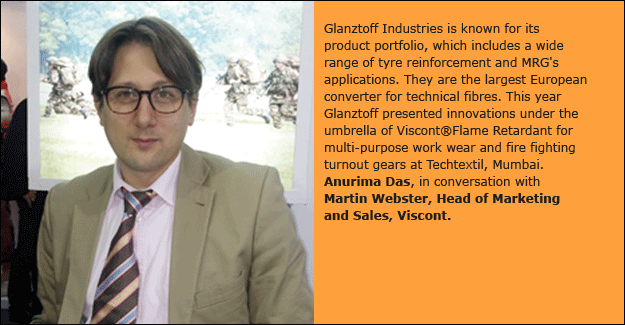Epson’s Monna Lisa Series Ensures Enhanced Reliability And Flexibility In Digital Printing Space
Epson’s Monna Lisa Series Ensures Enhanced Reliability And Flexibility In Digital Printing Space

Energy And Water Consumption Reduced Significantly When Compared To Conventional Printing
Epson brings a host of new technology, a vision to alter fabric printing with environmental compliance and smart versatile approach. Textile Excellence interacted with Giovanni Pizzamiglio, Head of Pro-Graphics Sales, Epson and Angelo Marelli, R&D Manager of FOR.TEX to shed light on the new developments that Epson offers and is ready to explore in the future.
Let’s talk about Epson’s partnership with Robustelli and FOR.TEX. You also announced the FOR.TEX association quite formally at the ITMA, 2015.
Giovanni Pizzamiglio: In 2003, Epson entered the high end textile market with the launch of Monna Lisa, an inkjet printer for printing on fabric, a veritable stepping stone in this area of application, allowing one to switch from the pioneering phase of the sampling to a reliable industrial production. By partnering with two companies that have long been active in the textile district of Como, F.lli Robustelli, a company specializing in the construction of textile machinery, and FOR.TEX, operating for over 30 years in the field of dyes, thickeners and specialty printing, Epson has moved towards a new market for textiles. This innovative approach gives a scope for versatility combining the same with high performance. Our printing solution has been awarded ‘Green Label’ certification for eco-sustainability, a project promoted by ACIMIT and supported by the Ministry of Economic Development.
Angelo Marelli: Recently, with the acquisition of 100% of FOR.TEX through Epson Italia, the Epson Group has reconfirmed its interest and commitment to environment friendly practices. This association will deliver completely environment friendly innovative machines which significantly reduce environmental impacts. Energy and water consumption can be reduced by 40% and 75% respectively when compared to conventional printing.
Epson presented Monna Lisa Vinci and Monna Lisa Evo Tre at ITMA 2015, Milan. Describe the improved features of these machines.
Giovanni Pizzamiglio: The main features are the enhanced reliability, resulting from the elimination of traditional machine down-times; and the highest flexibility, in order to meet the new design needs thanks to the possibility of using up to 12 colours. Another strength of the new machines are the new TFP Precision Core heads, designed by Epson, that enable improved accuracy in ink jet and a higher quality of printing, irrespective of the number of passages. In addition, the heads lifetime has been estimated up to two years. Both machines use Genesta, the water-based inks developed by Epson in cooperation with For.Tex and exclusively created to enable precision and fastness of textile printings. The entire Monna Lisa series is a viable alternative to conventional textile printing because of its lower consumption of energy and water and reduced noise pollution. Its credentials are well proven and adopted by customers across diverse markets.
How competitive is the pricing of these machines?
Angelo Marelli: We are yet to decide on the complete price range for these new machines. But price of a machine depends on the components and features attached to it. Every customer’s requirement is different and before selling a machine, we discuss the customer needs and based on that we ensure the components tied with the technology. So, our product is customised to suit the exact needs of the said customer and hence price varies customer to customer.
What about maintenance and upgradation in the longer run?
Angelo Marelli: Since the launch of Monna Lisa series in 2003, we have sold over 300 units globally. We can claim that all the machines are up and running till now. From this, it is quite clear that maintenance issues is not something that you would face with our machines. Reliability at highest quality is counted ahed of speed in our printers. And if you say technological changes, yes Epson machines can be altered and modified from time to time to suit the changing face of technology. And the customers need not buy a new machine at all.
Do you see a market opening for these machines in India and Bangladesh?
Angelo Marelli: We already have 10 working units in India and have been extremely well received. The companys include TexIndia, Centex, Dream Digital, Fay Wear, Ganga Fashion, Preet, Sharman, Shingora. In Bangladesh we are hopeful about the market opening in the near future for the high quality printers.



 textileexcellence
textileexcellence 







